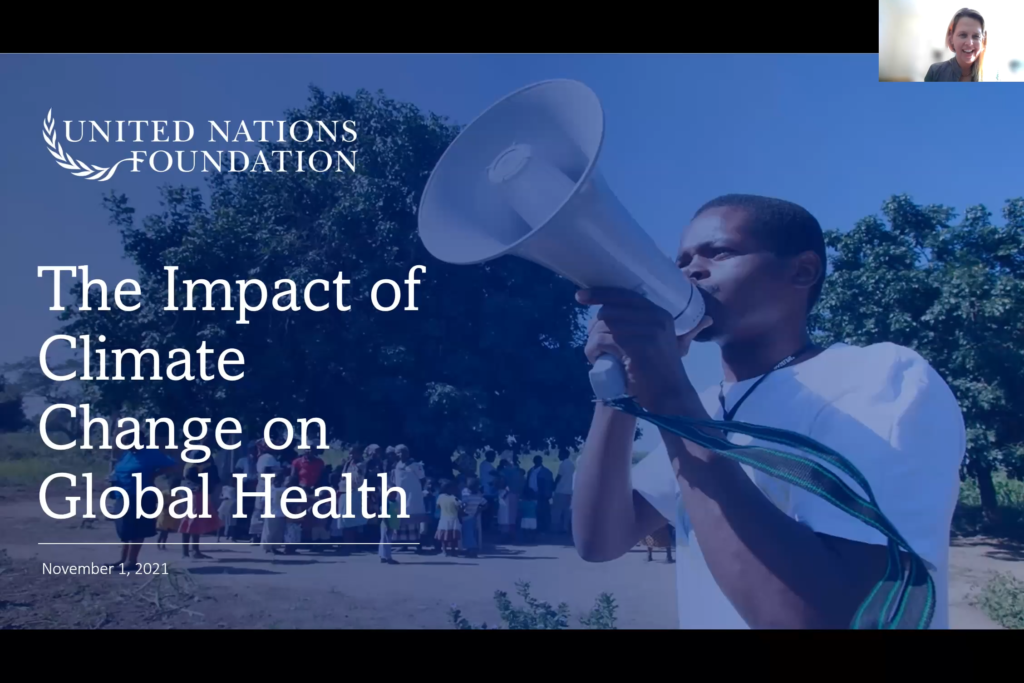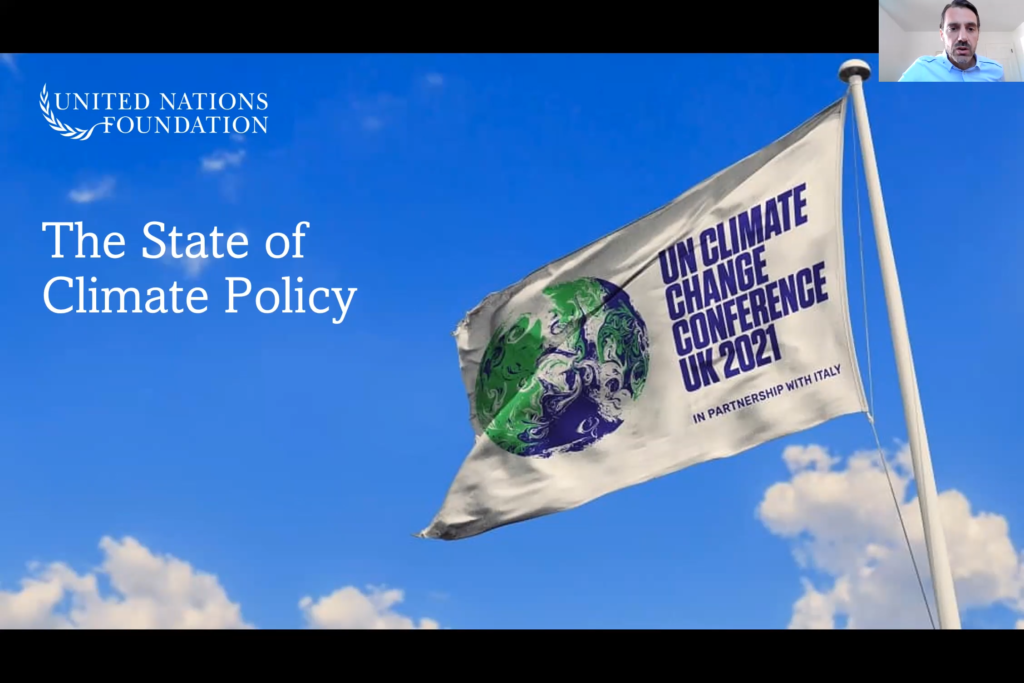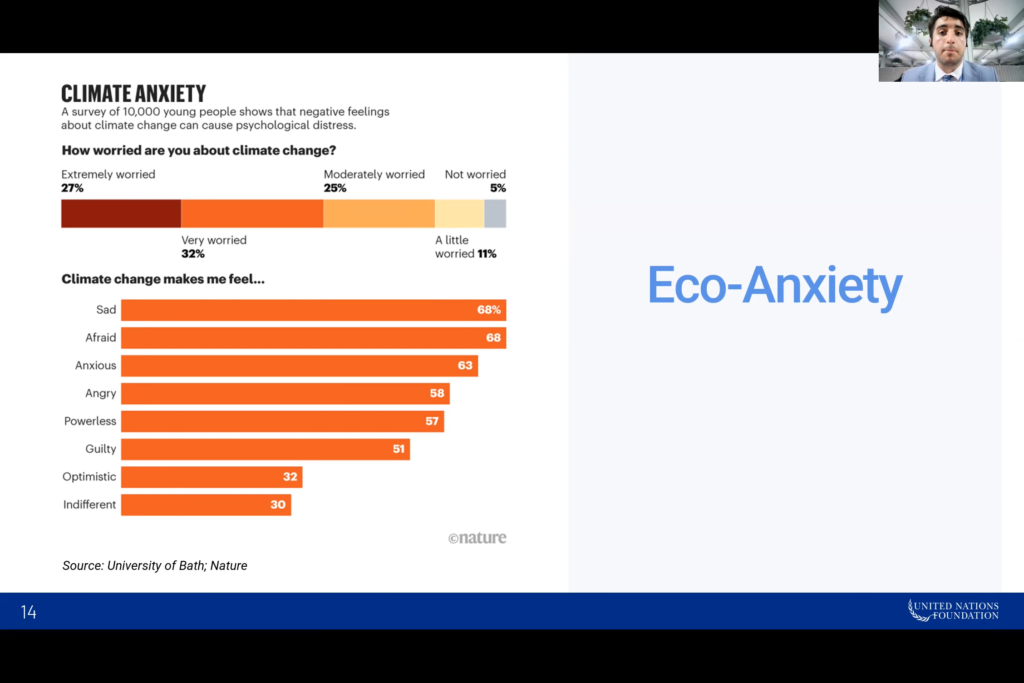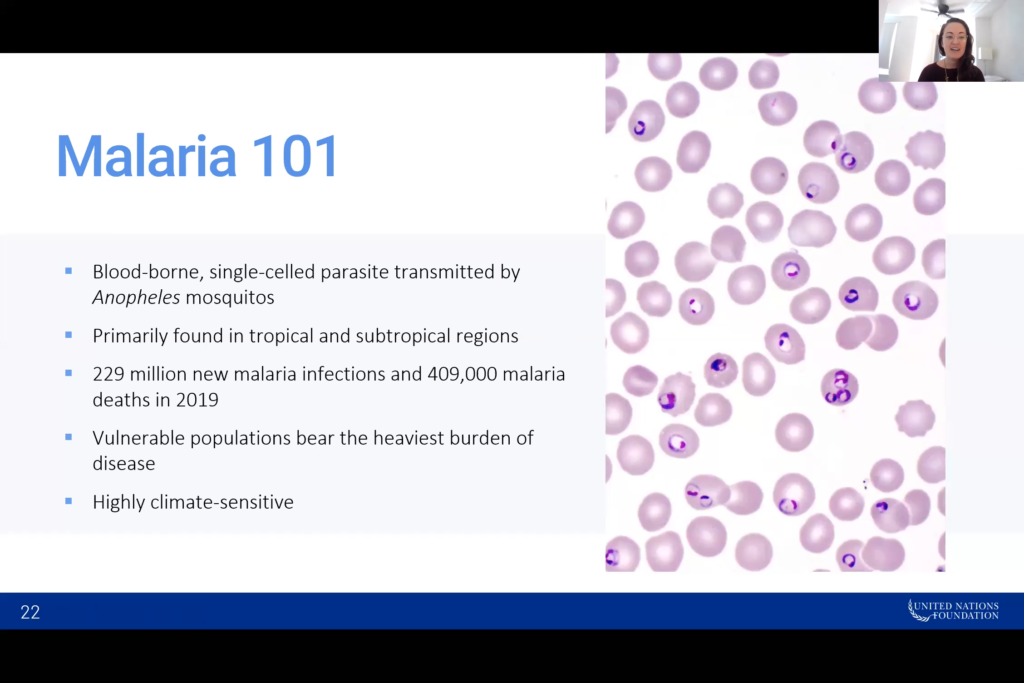The Impact of Climate Change on Global Health Event Recap
Shot@Life, UNA-USA, and United to Beat Malaria supporters listened in on discussions on the negative impact of climate change on global health during COP26 in Scotland.
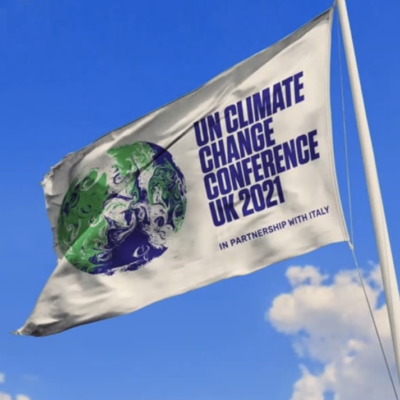
Discussing Climate & Health During COP26
On the first day of the 26th UN Climate Change Conference of the Parties (COP26) in Scotland, the United Nations Foundation’s Shot@Life, UNA-USA, and Nothing but Nets campaign supporters tuned in to a timely discussion on the impact of climate change on global health.
As diplomats and civil society leaders around the world met to make historic agreements in response to climate change, advocates learned more about the predicted effects of the rising global temperature, how climate change will affect health, and how to advocate for better climate and health policies.
Shot@Life’s Executive Director, Martha Rebour, provided opening remarks that noted the interconnectedness of the SDGs, particularly the connection between SDG 3 (Good Health and Wellbeing) and SDG 13 (Climate Action). Climate change already affects our health with millions of people dying from air pollution and extreme weather. The future impacts on our health will be much worse, causing more climate refugees, political instability, and displacement.
Developing Countries Bear the Brunt of Climate Crisis
Ryan Hobert, the Managing Director of Climate, Energy, and Environment at the UN Foundation spoke about the state of international climate policy. He outlined how the main goal of COP26 is to reduce emissions and that the conference will build on the goals set out in the Paris Agreement.
Ryan also noted the role of developing countries in climate change and health. Low and middle-income countries will feel the worst effects, due to their vulnerable geographical locations and lack of resources to combat the effects of climate change. Low and middle-income countries need to meet their development needs, but this often comes at the expense of the environment. Ryan pointed out the fact that ten years ago, Beijing was riddled with air pollution, but has now eliminated almost all of it. He hopes that countries dependent on fossil fuels, like India, can follow suit while still meeting their own development needs. To make improvements, we must try to mitigate climate change and help these countries adapt to climate change’s effects.
Reporting from Glasgow: Eco-Anxiety and Mental Health
Keyon Rostamnezhad, the Global Goals Ambassador for SDG 13 Climate Change, joined live from COP26 in Glasgow and spoke about the impact of climate change on mental health, particularly “eco-anxiety.” Climate change already impacts the mental health of 47% of Americans, and this is expected to increase as the climate crisis worsens. Eco-anxiety and other climate-induced mental health issues disproportionately affect women and young people. However, to deal with this crisis, we can:
- acknowledge the increased prevalence of mental health challenges.
- address gender and age disparities in mental health issues.
- give more representation to women and young people in climate discussions.
Case Study: Climate Change’s Impact on Tackling Malaria
Tara Bracken, the Senior Officer for Malaria Advocacy and Communications, spoke about how infectious diseases, specifically malaria, are spreading because of warmer temperatures. Rising temperatures and changing rainfall patterns will increase where mosquitos are found, causing malaria to spread to more areas and have higher transmission rates. Tara also noted how displacement from extreme weather creates additional health challenges; people displaced from extreme weather tend to be concentrated in high-risk and high-exposure settings where there is reduced access to mosquito prevention. One potential solution is to integrate malaria prevention into disaster response.
The event concluded with thoughtful questions from the audience. Keyon said that while many of his peers in the climate space suffer from eco-anxiety, he is optimistic about the future and thinks that policymakers can make the changes we need. Ryan shared how having an overarching system where polluters are paying for their pollution will be difficult to implement but is an important solution to reduce emissions. The panelists ended by discussing expectations for the agreement that will come from the UN’s climate conference.
“The sustained attention on these issues throughout the years are finally bearing fruit” in the form of meaningful discussions and actions, said Ryan Hobert.
Thank you to everyone who attended this event. You can watch the recording here. To learn more about the intersection of climate change and health, read Shot@Life’s blog here.

